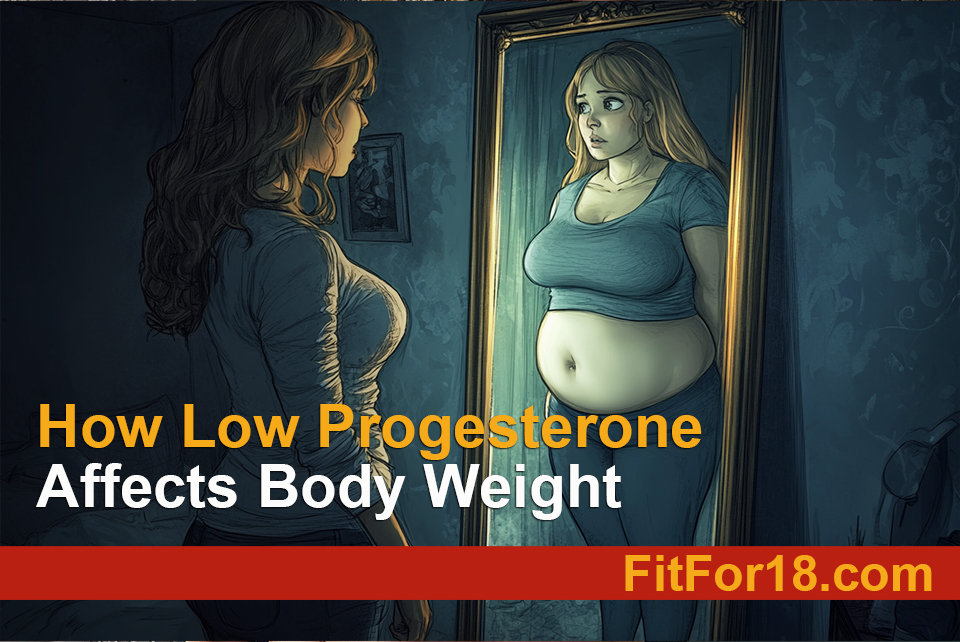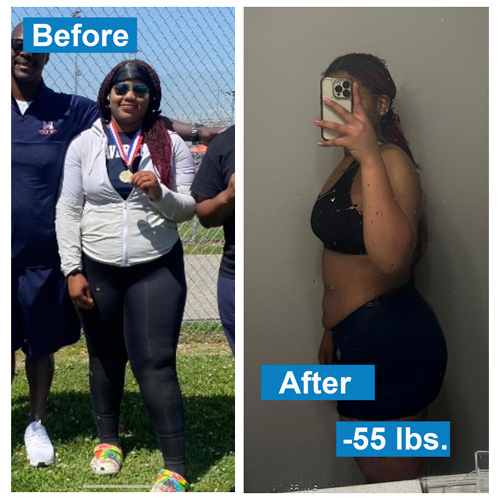I’ve trained a lot of women that have inquired about trying to reach goals and make changes after menopause. After a little research I was able to help many female clients continue losing weight after menopause.
For most women, embracing the changes that come with menopause can be empowering, but the accompanying weight gain often poses a unique challenge. As hormonal shifts alter your metabolism and body composition, shedding those extra pounds might seem like an uphill battle.
But fear not, in this blog we will embark on a journey to explore practical and achievable strategies to navigate weight loss during menopause. By combining a balanced approach to nutrition, regular exercise, and mindful lifestyle choices, you can reclaim control over your health and well-being.
Embrace Nutrient-Rich Foods
The foundation of successfully losing weight after menopause lies in adopting a balanced and nutrient-rich diet. Prioritize whole foods, such as lean proteins, whole grains, fruits, and vegetables. Lean proteins, like chicken, fish, and legumes, support muscle maintenance and control hunger, while complex carbohydrates provide sustained energy.
When you’re making decisions on what goes into your shopping cart, make sure to include healthy fats from sources like avocados, nuts, and olive oil, contributing to hormone regulation and a feeling of fullness.
Most importantly, don’t forget the importance of portion control. Sometimes, opting for smaller plates can assist in mindful eating.
Engage in Regular Exercise
Exercise is a potent tool in the battle against menopausal weight gain. Aim for at least 150 minutes of moderate-intensity aerobic exercise per week, such as brisk walking or cycling.
Additionally, incorporate strength training exercises into your routine to preserve and build muscle mass, which is crucial for an efficient metabolism. Find activities you enjoy to make exercise a sustainable part of your lifestyle. Whether it’s dancing, swimming, or hiking, the key to controlling weight gain is to keep moving.
Consider Hormone Replacement Therapy (HRT)
For some women, Hormone Replacement Therapy (HRT) can be a valuable option to manage menopausal symptoms and aid in weight control. Hormone replacement therapy (HRT) involves taking medication to replace hormones that the body stops producing during menopause or due to other reasons.
For women, HRT can come in various forms, including pills, patches, creams, gels, or injections. Each form delivers hormones like estrogen and progesterone to alleviate menopausal symptoms such as hot flashes, vaginal dryness, and mood swings.
The choice of form depends on factors like personal preference, medical history, and the specific symptoms being addressed. If HRT is a treatment you may be interested in, consult with your healthcare provider to explore the potential benefits and risks associated with HRT, as it may not be suitable for everyone. An informed decision, guided by professional advice, can contribute to your overall well-being during this transitional phase.
Prioritize Stress Management
The connection between stress and weight gain is well-established, especially during menopause. Incorporating stress-reduction techniques such as yoga, meditation, or deep breathing exercises into your daily routine are great ways to help manage your stress. Managing stress not only supports your mental health but also helps prevent emotional eating, a common obstacle to successful weight loss.
Ensure Quality Sleep
Adequate and restful sleep is a vital component of any weight loss journey. Lack of sleep can disrupt hormonal balance, leading to increased cravings and weight gain.
Women experiencing menopause still require about 7-9 hours of sleep per night for optimal health and well-being. However, menopause can bring about changes in sleep patterns and quality due to hormonal fluctuations and other factors. This is why it is important to establish a regular sleep schedule, create a comfortable sleeping environment, and practice good sleep hygiene to ensure you get the rest your body needs to support your weight loss goals.
If you find yourself restless and sleep disturbances become problematic, you may want to consult with a healthcare professional.
Stay Hydrated
Often overlooked but essential, staying hydrated is crucial for overall health and weight management. Drinking plenty of water helps control appetite and prevents dehydration, which can sometimes be mistaken for hunger.
If possible, make it a habit to carry a water bottle with you throughout the day to ensure you meet your hydration needs.
Practice Mindful Eating
Mindful eating involves paying attention to your food, savoring each bite, and being aware of your body’s hunger and fullness cues. This practice can prevent overeating and promote a healthier relationship with food.
When eating meals, turn off distractions, chew your food slowly, and savor the flavors to enhance the satisfaction you derive from your meals.
Life After Menopause
Weight loss during menopause is undoubtedly a multifaceted journey, requiring a holistic approach to diet, exercise, and lifestyle choices. Remember to embrace nutrient-rich foods, engage in regular exercise, and consider personalized interventions like Hormone Replacement Therapy with the guidance of healthcare professionals.
Also, prioritize stress management, ensure quality sleep, stay hydrated, and practice mindful eating to foster a sustainable and enjoyable path toward achieving your weight loss goals.
Remember, the key is consistency and patience as you embrace this transformative period in your life with a renewed focus on your health and well-being. With these strategies in hand, you can confidently navigate menopause and emerge stronger, healthier, and happier.

Questions About Weight Loss or Fitness?
I'd be happy to help you on your path towards reaching your fitness goals!
RELATED BLOGS

How Peptides Can Help Sugar Levels And Diabetes
How peptides can help people with diabetes keep their sugar levels in a healthy range.

Why Peptides Are a Safer, Smarter Choice Than Ozempic
Ozempic may be the latest crazy, but is it safe? Here is why peptides may be a better alternative.

How Low Progesterone Affects Body Weight
How low levels of progesterone can significantly impact body weight.

How Cortisol Affects Body Weight
The physical effects of cortisol and its influence on body weight.

Iron Deficiency Causes, Symptoms, and How Your Diet Can Help!
Understanding iron deficiency and how your diet can help.

Get Moving: Top 5 Physical Activities For a Vibrant Retirement
A list of the top five physical activities that are perfect for retirees.

Weight Loss Guide for Those with Thyroid Disorders
Lifestyle choices that support weight loss and the well-being for those with thyroid challenges.

Red Wine, The Weight Loss Elixir
The benefits of red wine and how it can help you through your weight loss journey.

Can Health Issues Cause a Low Sex Drive?
How certain health issues can lower your sex drive and how to work on increasing your libido.

Lose Weight Like Tamia
How Tamia lost 55 pounds on 3 months with Travis Johnson.

